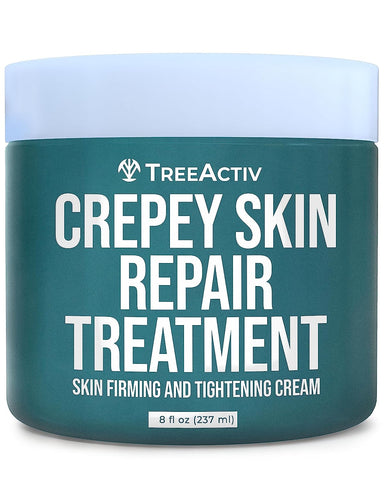Pros and Cons of Using Coconut Oil for Crepey Skin: A Closer Look
Crepey skin, characterized by thin, wrinkled texture reminiscent of crepe paper, is a common skin concern that often comes with aging. While there are various remedies and treatments available, natural solutions like coconut oil have gained popularity as potential solutions for this issue. In this blog, we'll take a closer look at the pros and cons of using coconut oil for crepey skin, exploring its benefits, potential drawbacks, and proper usage.
What is Coconut Oil?
Coconut oil is a natural oil derived from the flesh of coconuts. It is rich in fatty acids, such as lauric acid, capric acid, and caprylic acid, which give it numerous potential benefits for skin health. Additionally, coconut oil contains vitamin E and antioxidants, making it a popular choice for skincare.
Pros of Using Coconut Oil for Crepey Skin
- Deep Moisturization: One of the key advantages of using coconut oil for crepey skin is its excellent moisturizing properties. It penetrates the skin easily, providing hydration to the deeper layers and helping to improve the appearance of fine lines and wrinkles.
- Anti-Aging Effects: The antioxidant content in coconut oil helps combat free radicals, which can contribute to premature aging. Regular use may help reduce the appearance of crepey skin and promote a more youthful complexion.
- Skin Barrier Support: The fatty acids present in coconut oil can help strengthen the skin's natural barrier function. This can be particularly beneficial for individuals with crepey skin, as a compromised barrier can exacerbate the condition.
- Non-Irritating: Coconut oil is generally well-tolerated by most skin types, including sensitive skin. It is non-comedogenic, meaning it won't clog pores, making it a suitable option for many individuals looking to address crepey skin.
- Versatility: Apart from its direct application, coconut oil can also be used in DIY skincare recipes, combining it with other natural ingredients to create personalized remedies for crepey skin.
Cons of Using Coconut Oil for Crepey Skin
- Comedogenic Potential: While coconut oil is non-comedogenic for most people, some individuals may experience clogged pores or breakouts when using it on their face or body. Performing a patch test before applying it extensively is advisable.
- Limited Scientific Evidence: While there is anecdotal evidence and some small-scale studies suggesting the benefits of coconut oil for the skin, there is a lack of large, well-controlled clinical trials specifically targeting crepey skin. As a result, the effectiveness of coconut oil for this condition remains uncertain.
- Sensitivity Concerns: Although it is generally safe for most people, some individuals may have coconut allergies or skin sensitivities that could lead to irritation or allergic reactions. Always check for any allergic reactions before using coconut oil on your skin.
- Lack of Immediate Results: Like many natural remedies, the effects of coconut oil may take time to become noticeable. Patience and consistent application are essential to observe any potential improvements in crepey skin texture.
How to Use Coconut Oil for Crepey Skin

- Patch Test: Before using coconut oil on a larger area, conduct a patch test on a small, discreet part of your skin to ensure you do not have an adverse reaction.
- Cleanse and Exfoliate: Ensure the skin is clean and exfoliated before applying coconut oil. This allows better penetration and absorption of the oil.
- Application: Take a small amount of coconut oil and gently massage it into the affected areas in circular motions. For facial application, use a lighter hand and avoid contact with the eyes.
- Frequency: Use coconut oil once or twice a day, preferably after showering or bathing, to lock in moisture.
- Be Patient: Consistent use over weeks or months may be necessary to observe potential improvements in crepey skin texture.
Conclusion
Coconut oil has garnered attention as a potential remedy for crepey skin due to its deep moisturization, anti-aging properties, and skin barrier support. It is a versatile and natural option for those seeking to address this common skin concern. However, it is essential to acknowledge that individual results may vary, and more scientific research is needed to fully understand its efficacy for crepey skin. As with any skincare product, performing a patch test and consulting with a dermatologist can help ensure its suitability for your specific skin type and condition.


